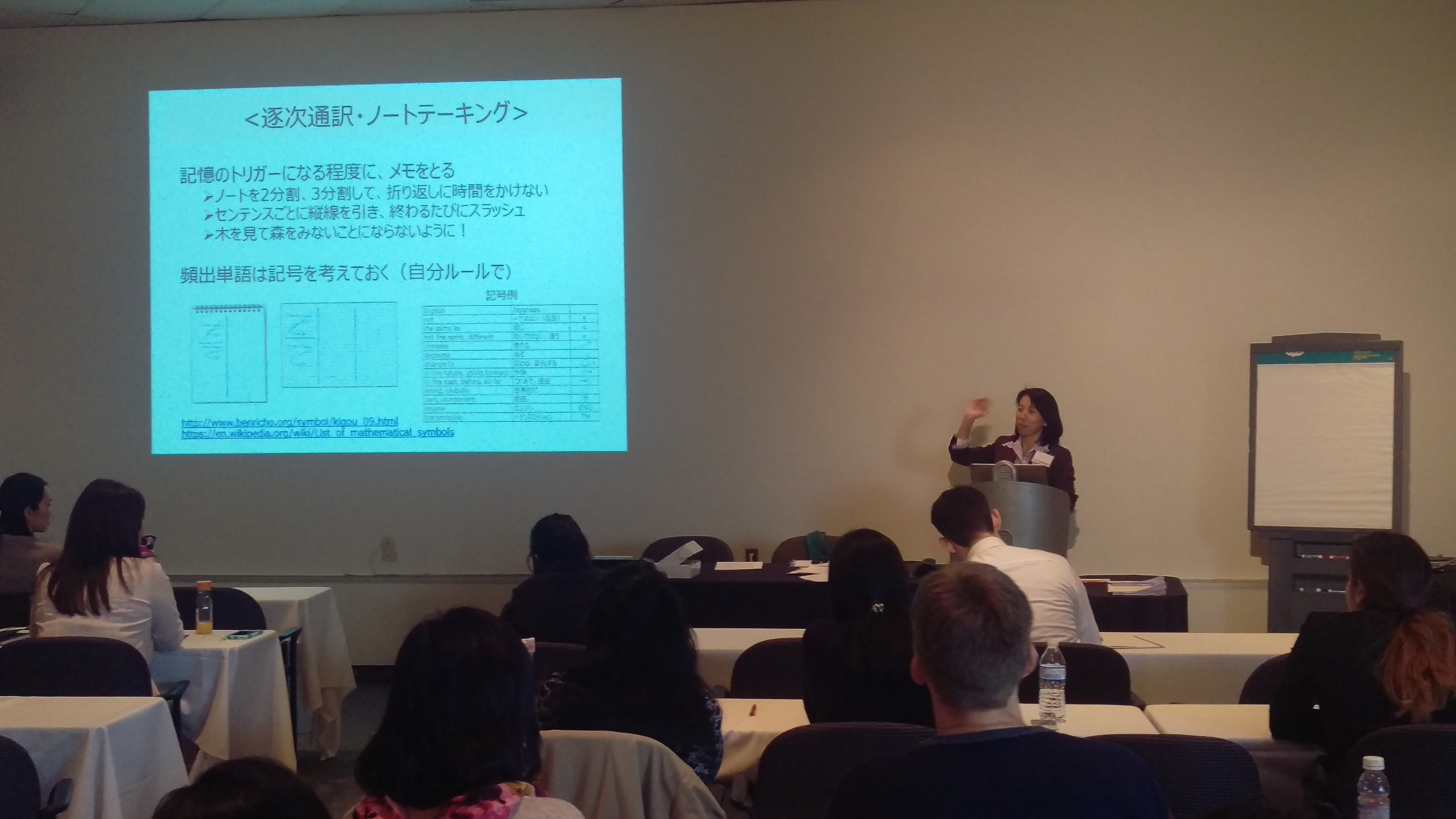
In 2017, I became a freelance conference interpreter. My reasons for leaving my cushy in-house job were simple: 1) I was bored with interpreting the same subject matter every day and, 2) I wanted to make more money. But being a freelance interpreter means running your own business. This is not something I was ready for. Luckily, I had an untapped skill set that I was able to apply toward growing my business. But not everyone has an easy time adapting to the change. So, let’s look at what you need to mentally and practically prepare to go freelance.
What skills do I need?
While you always need to work on improving the level of service you provide by growing your language skills, practicing interpreting, and continuing your professional development, for the sake of this article, let’s assume that you are already the best in interpreter in your specialization.
- Networking 🤝
- What you need
- In order to get work, you have to know people. Other interpreters, both in your language pair and in other language pairs, will recommend you as an interpreter. You also need to know potential clients or people who will recommend you to other clients.
- What you can do
- This means, you have to find opportunities to connect with people, preferably in person. There are lots of ways to do this. I volunteer with the Japan Association of Translators and attend regular conferences to make T&I industry contacts. I attend trade shows and seminars in my specialty fields to meet potential clients.
- What you need
- Marketing 🔊
- What you need
- In order to get work, people have to know that you are available. You have to display yourself as a professional that people will want to hire. This means polished profiles on LinkedIn, ProZ, Translators Cafe, translator.jp, Amelia, etc. It also having a domain name for your email and website. Professional headshot or a company logo is also preferred.
- What you can do
- Look at your competitors. How are successful people in the same space marketing themselves?
- Imagine your target client. What online spaces do they visit daily? Where can you interact with them? What message is going to reach them? Where would they turn when they need an interpreter?
- In a non-pushy way, reach out to your network, both T&I and past employers, to let them know what services you are offering and when you are available. Think about it from their perspective. Don’t overburden them with information. Just tell them what would be useful for their business.
- What you need
- Accounting 🧮
- What do you need
- Basic knowledge of how to keep accounts and what to write off. Check youtube for small business accounting.
- A form for keeping track of expenses and income.
- A CPA to do your taxes (probably)
- What can you do
- For forms, you can find an income statement, quote, and invoice format on excel or google sheets. Or you can use a service like Freshbooks or Quickbooks to do all of this for you.
- What do you need
- Equipment/Tech 🎙️
- What you need
- Post COVID, a lot of interpreting has gone online. If you want to be asked back for RSI assignments, you will need your own RSI set up. This includes a quiet room, a good computer, a strong WIRED internet connection, and a quality external microphone.
- Some clients will ask you to arrange for bidule (パナガイド) equipment.
- What you can do
- Do a test with the equipment you have on Zoom, using the interpreting function. Record yourself interpreting and then listen back. How does it sound? Would you be comfortable listening to this for several hours? If not, look at the recommendations from an RSI platform to see what you need to improve. Here are Interprefy’s recommendations as a reference.
- Find an interpreting equipment rental company you can use and learn how to troubleshoot the equipment, change channels etc. You might even get a quote for a 1 day event with 25 people, so you have a ballpark to quote your clients.
- What you need
- Business manners 🙇♀️
- What you need if you did not spend time as a working professional (read not English teacher) in your B language country
- Business email formats
- Target clients’ preferred form and frequency of communication
- Understanding of business customs such as how often to meet clients in person, when to send gifts or thank you notes, how to address the clients or behave appropriately when traveling with them, etc.
- What you need if you did not spend time as a working professional in your A language country
- Many foreigners I know who translate/interpret, spent their formative post-college years in Japan. If this sounds like you, you may need to work on your English business manners. Many things that are considered polite or even required behaviors in Japan will make your American clients feel like you are being too specific or formal. Knowing how to respond differently to each of these audiences is what will get you repeat customers.
- What you can do
- Read at least one book designed for recent college graduates (入社一年目、社会人としての心得、Effective Emails, The First Minute, What They Don’t Teach You In Business School) My go-to was actually a study book for the ビジネス検定 but the books have changed in recent years. You can check out the newer one (2023) here.
- Get a tutor in your weakest area. You can find lots of freelancers who do marketing or business coaching. Hire one for a set number of sessions or email reviews to give you advice on where how you give clients a good impression.
- Set a plan for summer gifts, visits to clients, and email outreach. I like Clickup for organizing to-dos and Dex for organizing my contacts and reminding me to reach out to people.
- What you need if you did not spend time as a working professional (read not English teacher) in your B language country
In summary, there are lots of skills that you will need for a your new freelance career. But there is a lot you can do to get yourself moving in the right direction. Feel free to ask questions or comment below with related tips.

 The Japan Association of Translators is running a great seminar called The Japanese Automotive T&I Seminar. This is a continuation of the
The Japan Association of Translators is running a great seminar called The Japanese Automotive T&I Seminar. This is a continuation of the 
 You are being paid to translate one language into the other. Both parties are trusting you to conduct your work fairly. They trust that what you are saying accurately reflects the speaker’s intended meaning. If you lose that trust on either side, you are no longer reliable; regardless of how good your language skills may be. Confidentiality is the most important skill for an interpreter.
You are being paid to translate one language into the other. Both parties are trusting you to conduct your work fairly. They trust that what you are saying accurately reflects the speaker’s intended meaning. If you lose that trust on either side, you are no longer reliable; regardless of how good your language skills may be. Confidentiality is the most important skill for an interpreter. When I am faced with this situation, I like to handle it this way. Usually I am working simultaneously so I am close to the offending comment. I pause and then say, “Don’t translate that last part,” just as the person said it. This way the Americans know that something was said and can chose to push back or leave it be. If I cannot do this, I will say “The interpreter has omitted the last statement at the request of the speaker.” This usually makes the Americans perk up and want to know what was said. But then you are back to interpreting, not intervening.
When I am faced with this situation, I like to handle it this way. Usually I am working simultaneously so I am close to the offending comment. I pause and then say, “Don’t translate that last part,” just as the person said it. This way the Americans know that something was said and can chose to push back or leave it be. If I cannot do this, I will say “The interpreter has omitted the last statement at the request of the speaker.” This usually makes the Americans perk up and want to know what was said. But then you are back to interpreting, not intervening.